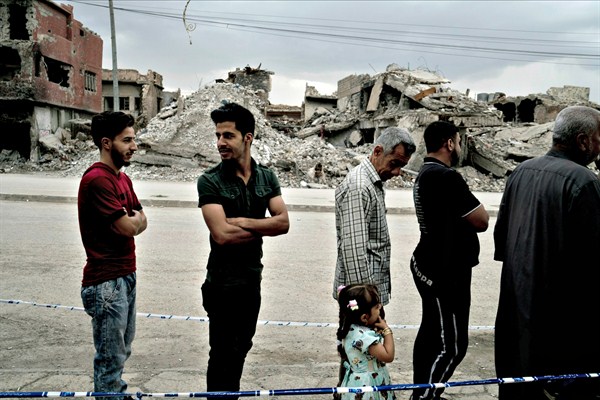Iraqis and outside observers alike are still making sense of the surprise results of last weekend’s elections, the country’s first since the violent rise and fall of the Islamic State. In the biggest shock, the populist Shiite cleric Muqtada al-Sadr’s political coalition—a nationalist, non-sectarian alliance between his political movement, secular activists and the Iraqi Communist Party, known as Sairoon—won the most seats in parliament. Trailing just a few seats behind were the pre-election favorite, the Nasr Alliance of incumbent Prime Minister Haider al-Abadi, and the Fateh Alliance led by Hadi al-Ameri, whose list represents a majority of paramilitary groups associated with the mainly Shiite Popular Mobilization Units.
The challenge of forming a government now awaits, and with it indications about Iraq’s future and the prospects for demanded reforms.
Understanding these results and their implications starts with voter turnout, which at 44.5 percent was the lowest of any elections since the United States invaded Iraq and toppled Saddam Hussein’s regime in 2003. The 2005 elections saw 70 percent voter turnout; the most recent vote, in 2014, had 60 percent turnout.

